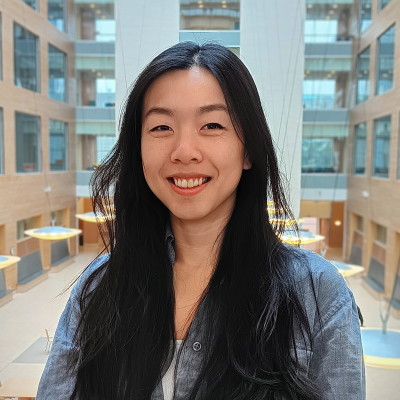
Research topic
Research Description
Plant roots grow among a plethora of bacteria in the soil (in the “rhizosphere”), whose effects on plants range from beneficial (e.g. plant growth-promoting) to pathogenic (causes disease). In the wild, the majority of plants exist disease-free, despite living with diverse microbial communities that include pathogens. This suggests that wild rhizospheres contain microbes that prevent infection (“protectives”) by opportunistic pathogens. However, interactions among bacteria in mixed communities are not well understood. A single rhizosphere may contain up to tens of thousands of unique bacterial strains, which introduces logistical limitations in studying plant-microbe interactions at a community scale. Thus, I am developing an in vivo high-throughput robotics-based screening platform, which will allow rapid screening of microbes for pathogenic or protective effects in plants. With this novel platform, I will use rhizosphere isolate collections from wild Arabidopsis thaliana to ask how symbiotic lifestyle, ecological niche, and evolutionary history are related in communities of pathogens and protectives.
Why did you decide to pursue a postdoctoral fellowship at UBC? Did you consider other opportunities?
I first met Dr. Haney in 2017 during a conference, and she was on my list of “amazing researchers I’d love to work with” for years. In 2021 I was looking for a position that would allow me to return home to Vancouver after my PhD and luckily there was an opportunity to join her lab. It seemed like a perfect fit— there was a lot of synergy between our research interests, and I would have the opportunity to gain skills I didn’t learn in my ecology degree like gene cloning, genomic analysis, and plant culturing. Thus, my decision to come to UBC was a combination of finding the right person at the right time in the right place. I didn’t feel the need to consider any other opportunities, because I knew this was the one I wanted to take.
What specifically attracted you to your research group?
The Haney lab is vibrant, bright, and full of life. A place with great lab atmosphere is just as hard to find as a place with great science, and the fact that the Haney lab has both is what drew me to it in the first place.
What advice do you have for new postdoctoral fellows?
It is easy to feel inadequate when you compare yourself to someone else’s specialty. Consider whether you are happy with the ways in which you are different from everyone else, rather than worrying about all the ways you could make yourself more similar.
What do you like to do for fun?
I have painfully stereotypical hobbies for someone from the Pacific North West. I ski in the winter and hike in the summer, and my love of the outdoors is complimented by a deep appreciation of craft beer. I love going on runs in the woods, knitting toques, and making bread. My guilty pleasure is watching trashy TV. I collect jars. I have too many houseplants. I like to cuddle my dog.
What is the most enjoyable aspect of your postdoctoral fellowship?
My postdoc has felt like an enhanced version of my PhD, where I have more time, more money, and more power. I have more agency in how I choose to spend my time, and with support from the Banting, I have substantially more power in deciding the trajectory of my projects. I am also more confident, and receive more confidence from others. So in that sense, what I enjoy most about being a postdoc is the increased degree of freedom and trust you receive-- it makes research incredibly fun.
What are the biggest challenges you have faced, or anticipate facing, in your career?
After living abroad in the US during my PhD, I realized that I am not willing to compromise on where I live long-term. I want to stay in British Columbia, and hopefully Vancouver. Thus, while I would love to stay in academia, I also have to be realistic. Faculty positions are notoriously competitive and difficult to get-- even more so when you are geographically constrained. I think this constraint will be a challenge in my job search, so I try my best to make myself as competitive as possible to increase my chances of finding a job in the place I want to live.
What in your life or career has prepared you for this position?
The skills, knowledge, and confidence you require to be a postdoc are all gained as a byproduct of doing your PhD. I don’t think there is anything specific that can prepare you to be a postdoc-- it’s just something you’re ready for (and hopefully want to do) by the time you finish your dissertation.
What does receiving this award mean for your career?
I’m not sure yet, but I’m excited to find out! With support from the Banting, I feel like I have this opportunity to really take risks in my research and accomplish something completely out-of-the box. I am excited to take advantage of the academic freedom that the Banting provides in that respect. I also think (and hope) that this award will open new doors and opportunities for me. The award is obviously rather prestigious, and I hope that it will signal to future employers that I’m worth taking a chance on.
What do you think the next step in your career will be?
I have been flirting with a lot of different career paths lately, ranging from academic to government to industry. I am an opportunist, so if an position presents itself in any of those options, I would be eager to give it a shot!